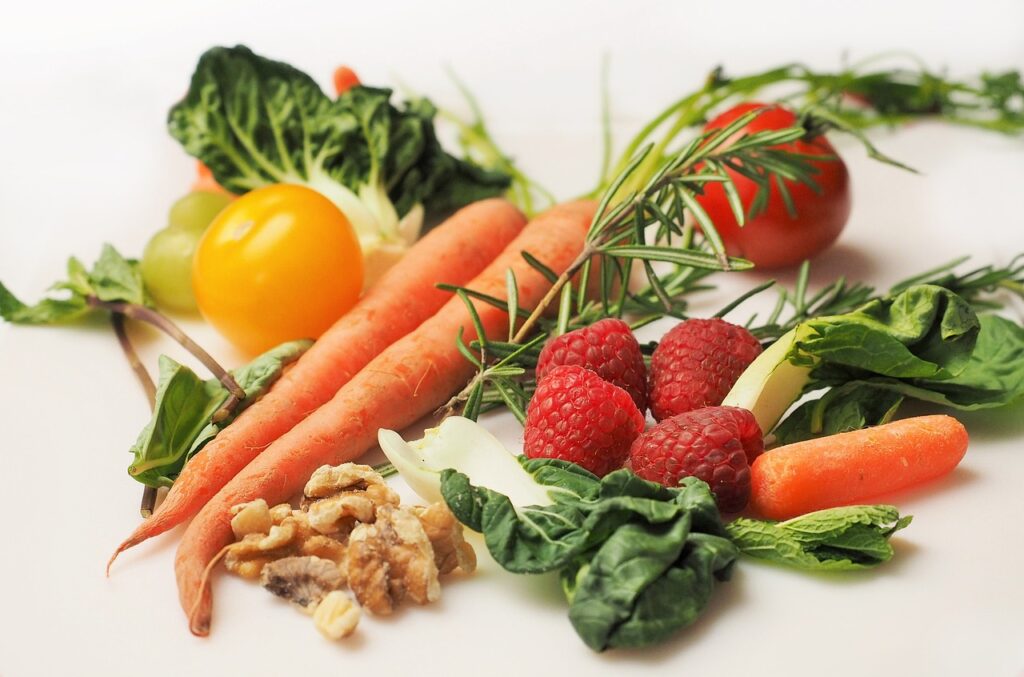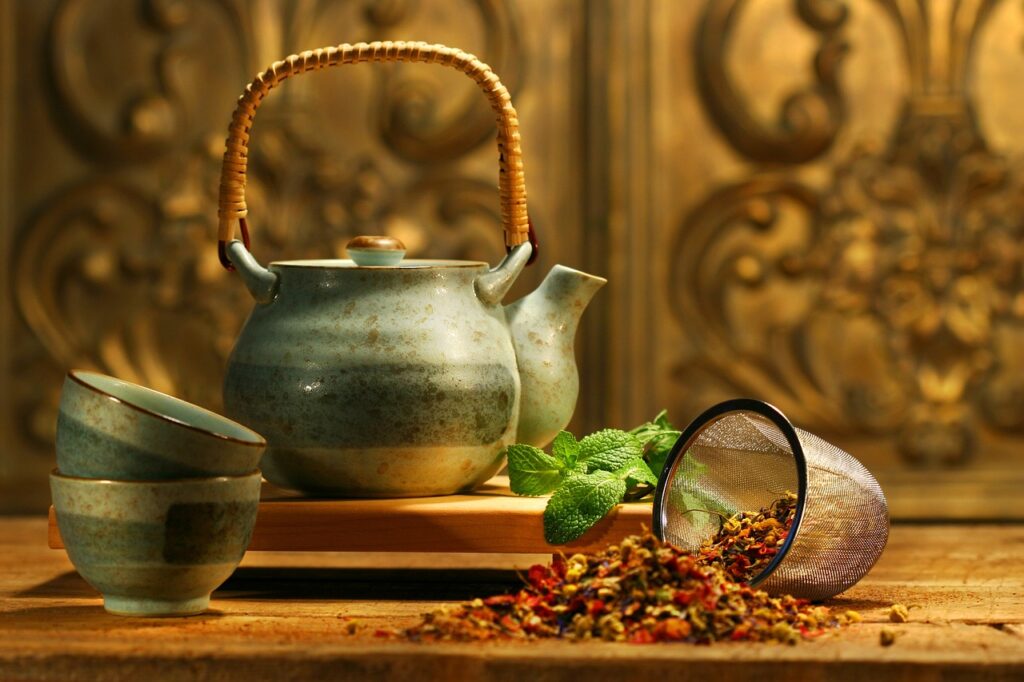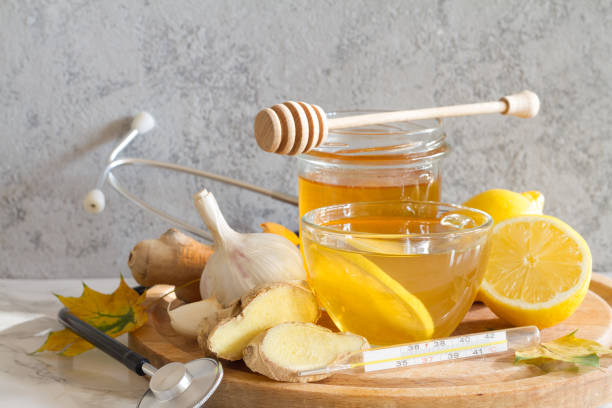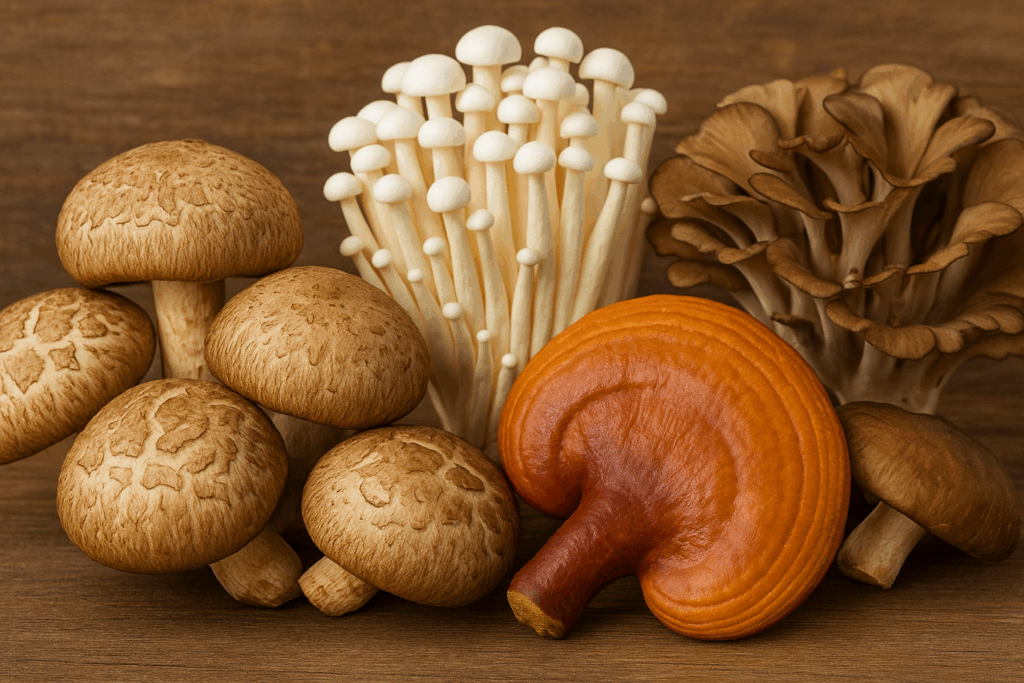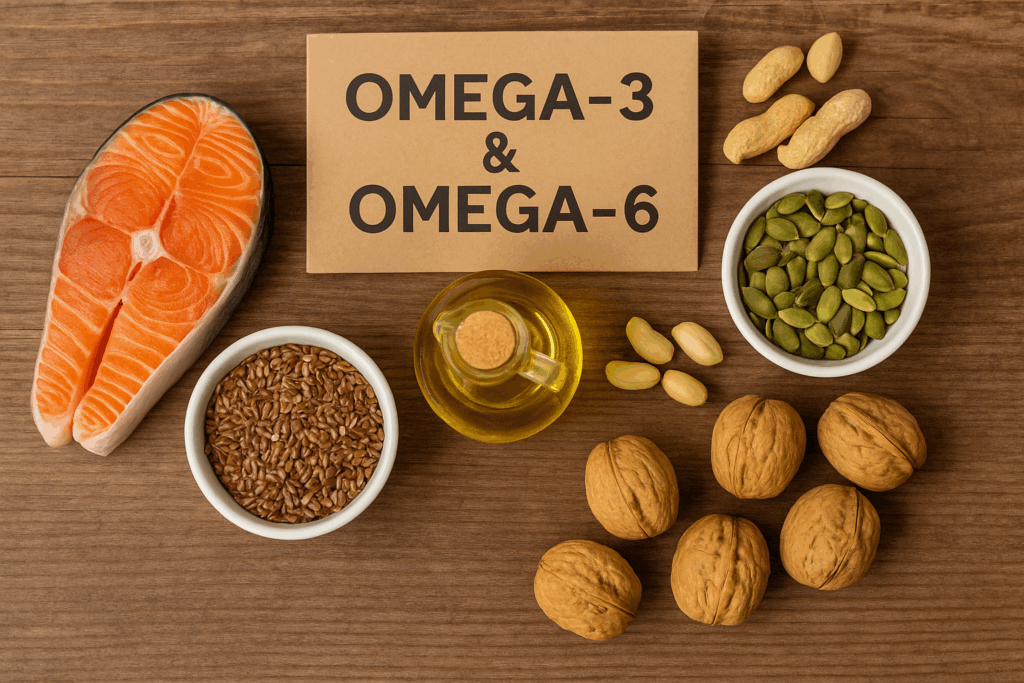As cold and flu season approaches, bolstering your immune system becomes more important than ever. While no single food can guarantee immunity, incorporating certain nutrient-rich options into your diet can help your body fight off infections and recover more quickly. Here are some of the best immune-boosting foods to include in your meals during this time.
1. Citrus Fruits
Citrus fruits like oranges, grapefruits, lemons, and limes are rich in vitamin C, which is known to enhance the production of white blood cells. These cells are crucial for fighting infections (Carr & Maggini, 2017). Including fresh citrus juice or slices in your diet can provide a quick immune boost.
2. Garlic
Garlic contains allicin, a compound with potent antimicrobial and immune-boosting properties. Regular consumption of raw or lightly cooked garlic can help ward off illnesses and reduce the severity of symptoms (Ankri & Mirelman, 1999).
3. Ginger
Ginger is a natural anti-inflammatory and antioxidant. It can soothe sore throats and reduce nausea, common symptoms during a cold or flu. Fresh ginger tea or grated ginger in meals can be a comforting addition (Mashhadi et al., 2013).
4. Leafy Greens
Spinach, kale, and Swiss chard are packed with vitamins A, C, and E, as well as antioxidants that enhance immune function. Lightly cooking these greens helps retain their nutrients while making them easier to digest (Booth et al., 2012).
5. Yogurt
Probiotic-rich yogurt supports gut health, which is closely linked to immune system strength. Look for unsweetened varieties with live and active cultures to maximize the benefits (Bron et al., 2012).
6. Nuts and Seeds
Almonds, sunflower seeds, and pumpkin seeds are excellent sources of vitamin E, zinc, and healthy fats. These nutrients play a key role in maintaining a robust immune system (Maggini et al., 2018).
7. Fatty Fish
Salmon, mackerel, and sardines are rich in omega-3 fatty acids, which reduce inflammation and support overall immune health. These fish are also a good source of vitamin D, essential for immune regulation (Calder, 2013).
8. Turmeric
This golden spice contains curcumin, a powerful anti-inflammatory compound. Pair turmeric with black pepper to enhance its absorption and enjoy it in soups, teas, or curries (Hewlings & Kalman, 2017).
9. Green Tea
Green tea is loaded with antioxidants like epigallocatechin gallate (EGCG), which boost immune function. It also contains L-theanine, an amino acid that supports the production of infection-fighting compounds in your T-cells (Chacko et al., 2010).
10. Berries
Blueberries, strawberries, and elderberries are packed with antioxidants and vitamin C. They help neutralize free radicals and reduce inflammation, strengthening your body’s defense system (Seeram, 2008).
11. Mushrooms
Varieties like shiitake, maitake, and reishi are known for their immune-enhancing properties. They contain beta-glucans, compounds that stimulate the immune system and improve resistance to infections (Hetland et al., 2011).
12. Sweet Potatoes
Rich in beta-carotene, sweet potatoes support the production of vitamin A, which is crucial for maintaining the health of your skin and mucous membranes—the body’s first line of defense against pathogens (Sommer & Vyas, 2012).
13. Broccoli
Broccoli is a powerhouse of vitamins A, C, and E, as well as fiber and antioxidants. Steaming it lightly preserves its nutrients, making it a great addition to your immune-boosting diet (Murashima et al., 2004).
14. Honey
Honey has antimicrobial and soothing properties, making it an excellent remedy for sore throats. Manuka honey, in particular, has higher antibacterial potency (Mandal & Mandal, 2011).
15. Bone Broth
Bone broth is rich in minerals and amino acids that support gut health and overall immunity. Its warm, hydrating nature can also help alleviate cold and flu symptoms (Beck & Salminen, 1990).
Tips for Incorporating Immune-Boosting Foods
- Start your day with a smoothie: Blend spinach, berries, yogurt, and a touch of honey for a nutrient-packed breakfast.
- Make hearty soups: Add garlic, ginger, turmeric, and leafy greens to your favorite broth for a comforting and immune-boosting meal.
- Snack wisely: Keep a mix of nuts and seeds handy for a quick, healthy snack.
- Hydrate with teas: Sip on green tea or ginger-turmeric tea throughout the day to stay warm and hydrated.
Conclusion
A balanced diet filled with these immune-boosting foods can help you stay healthy during cold and flu season. While food alone won’t prevent illness, it’s an essential part of a comprehensive approach to health. Pair your nutritious diet with adequate sleep, regular exercise, and good hygiene practices to give your immune system the best chance to thrive.
Sources
- Ankri, S., & Mirelman, D. (1999). Antimicrobial properties of allicin from garlic. Microbes and Infection, 1(2), 125-129. https://doi.org/10.1016/S1286-4579(99)80003-3
- Beck, M. A., & Salminen, W. F. (1990). Immune function and the trace elements. Journal of Nutrition, 120(11), 1233-1235. https://doi.org/10.1093/jn/120.11.1233
- Booth, S. L., et al. (2012). Roles for vitamins in the immune system. Proceedings of the Nutrition Society, 71(1), 50-61. https://doi.org/10.1017/S0029665111003262
- Bron, P. A., et al. (2012). Probiotics: Mechanisms and immune modulation. Current Opinion in Immunology, 24(4), 482-489. https://doi.org/10.1016/j.coi.2012.06.001
- Calder, P. C. (2013). Omega-3 polyunsaturated fatty acids and immune function. Proceedings of the Nutrition Society, 72(3), 299-309. https://doi.org/10.1017/S002966511300128X
- Carr, A. C., & Maggini, S. (2017). Vitamin C and immune function. Nutrients, 9(11), 1211. https://doi.org/10.3390/nu9111211
- Chacko, S. M., et al. (2010). Beneficial effects of green tea: A literature review. Chinese Medicine, 5(13). https://doi.org/10.1186/1749-8546-5-13
- Hewlings, S. J., & Kalman, D. S. (2017). Curcumin: A review of its effects on human health. Foods, 6(10), 92. https://doi.org/10.3390/foods6100092
- Hetland, G., et al. (2011). The mushroom Agaricus blazei Murill elicits medicinal effects on immunity. Advances in Pharmacological Sciences, 2011. https://doi.org/10.1155/2011/157015
- Maggini, S., et al. (2018). Immune function and micronutrient requirements change over the life course. Nutrients, 10(10), 1531. https://doi.org/10.3390/nu10101531
- Mandal, M. D., & Mandal, S. (2011). Honey: Its medicinal property and antibacterial activity. Asian Pacific Journal of Tropical Biomedicine, 1(2), 154-160. https://doi.org/10.1016/S2221-1691(11)60016-6
- Mashhadi, N. S., et al. (2013). Anti-oxidative and anti-inflammatory effects of ginger in health and physical activity: Review of current evidence. International Journal of Preventive Medicine, 4(4), 36-42. https://www.ncbi.nlm.nih.gov/pmc/articles/PMC3665023/
- Murashima, M., et al. (2004). Broccoli consumption increases the glucosinolate detoxication. Cancer Epidemiology Biomarkers & Prevention, 13(6), 1194-1198. https://doi.org/10.1158/1055-9965.EPI-03-0545
- Seeram, N. P. (2008). Berry fruits for cancer prevention: Current status and future prospects. Journal of Agricultural and Food Chemistry, 56(3), 630-635. https://doi.org/10.1021/jf072504n
- Sommer, A., & Vyas, K. S. (2012). Vitamin A supplementation and childhood morbidity. The Lancet, 380(9851), 454-456. https://doi.org/10.1016/S0140-6736(12)60696-0
